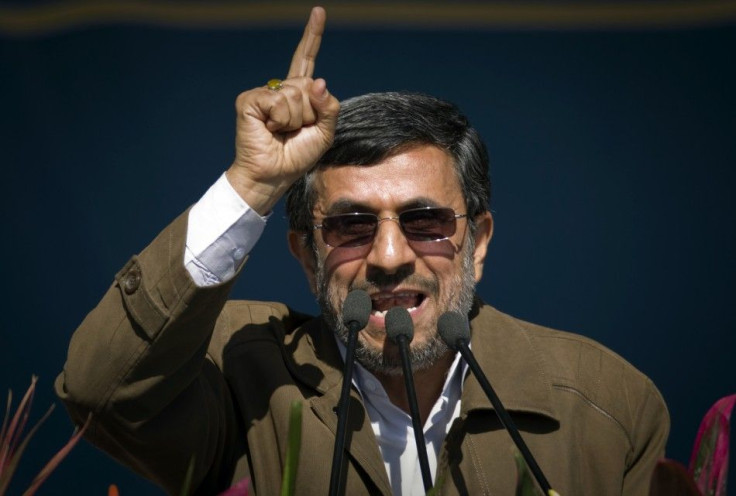Iran Nuclear Program Peaceful, Iranian Offical Says

Iran's foreign minister insisted that the country's nuclear program is not intended to make weapons and called for a resumption of talks, while speaking to the United Nations on Wednesday.
Speaking to the U.N. Conference on Disarmament in Geneva, Iranian Foreign Minister Ali Akbar Salehi said that Iran's nuclear program is a peaceful endeavor that Iran is entitled to pursue as a signatory to the Nuclear Non-Proliferation Treaty.
When it comes to our relevant rights and obligations, our consistent position is that Iran does not seek confrontation, nor does it want anything beyond its inalienable legitimate rights, Salehi said, adding that deploying or threatening to use nuclear weapons constituted a great sin prohibited by Islam.
Ambassador Laura Kennedy: Iran Flaunts International Obligations
Salehi said that Iran was open to continuing dialogue, but Laura Kennedy, America's ambassador to the Conference, said Iran had continued to flaunt international obligations.
Indeed, Iran has moved in the opposite direction by expanding its capacity to enrich uranium to nearly 20 percent and continues to move forward with proscribed enrichment and heavy-water related activities, all in violation of multiple U.N. Security Council resolutions, Kennedy told the talks.
Iran is coming under intensifying international pressure and scrutiny over its nuclear program. The International Atomic Energy Agency (IAEA) released a report on Friday contending that Iran had refused to elaborate on aspects of its program or allow inspectors into nuclear facilities. The report noted that Iran had defied the U.N. Security Council by continuing to enrich uranium, a necessary component in nuclear weapons.
Israel's leaders have also become increasingly bellicose. Some maintain that Iran is on the verge of entering what Defense Minister Ehud Barak calls the zone of immunity, after which a military strike would not be able to halt Iran's progress towards a nuclear weapon.
The Obama administration is pushing for more time to allow economic sanctions to exert pressure on the Iranian regime, and a U.S. intelligence official told the Associated Press that Israel could launch an attack on Iran's nuclear sites without notifying the U.S.
--
© Copyright IBTimes 2025. All rights reserved.





















